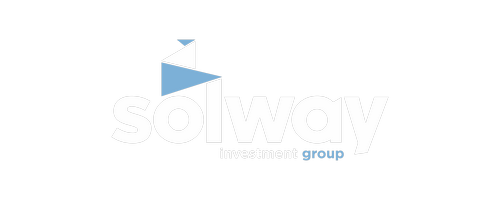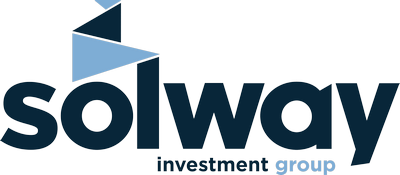SUSTAINABILITY POLICES
HUMAN RIGHTS POLICY
Table of contents
1. Introduction
2. Purpose
3. Scope
4. Foundational principles
5. Operational principles
5.1. Operational principles summary
5.2. Additional Human Rights standards
5.3. Human Rights Due Diligence
5.4. Prevention and mitigation of adverse impacts
5.5. Grievance mechanism
5.6. Remediation or reparation mechanism
6. Continuous improvement principles
Annex 1
1. Introduction
Solway Investment Group GmbH (hereafter – Solway) is a private international mining and metals group located in Switzerland. Solway operates mines and smelting plants in Guatemala, Ukraine, Indonesia, and Macedonia, with a focus on nickel and copper production.
2. Purpose
This Policy describes the foundational and operational Human Rights commitments, principles and rules valid for Solway. The policy provides a framework for planning and implementing Solway Investment Group’s strategic goals.
3. Scope
This Policy applies to all Solway subsidiaries and industrial assets, directors, and employees. Likewise, it applies to all Solway subsidiaries and industrial assets’ business partners and suppliers.
4. Foundational principles
Solway respects and promotes human rights.
Solway respects and promotes all national laws and internationally recognized human rights principles, including the United Nations Universal Declaration of Human Rights, the International Covenant on Civil and Political Rights, the International Covenant on Economic, Social and Cultural Rights, the European Convention on Human Rights and the International Labor Organization’s Declaration on Fundamental Principles and Rights at Work.
Solway commits to:
– avoid causing or contributing to adverse human rights impacts through their own activities, and to address such impacts when they occur;
– identify, prevent, or mitigate any adverse human rights impacts and salient human rights issues caused through its own activities and to address such impacts when they occur, even if Solway has not contributed directly to aforementioned impacts;
– promote internal processes to enable the reporting and remediation of any adverse human rights impacts caused by the company or to which it may contribute;
– contribute to the remediation of such adverse effects generated, and cooperate in the judicial and non-judicial processes that proceed.
Solway admits that the responsibility to respect and promote human rights applies to all Solway subsidiaries and industrial assets regardless of their size, sector, operational context, ownership, and structure.
5. Operational principles
5.1. Operational principles summary
The Human Rights Policy is approved and accepted by the members of Solway Board of Directors, and it sets one of the main guidelines for the executive decision-making process.
Solway commits to:
– embed the principles of this Human Rights Policy in Solway internal policies and procedures;
– ensure that external and internal stakeholders are aware of the key Human Rights principles, and their relevance to business operations.
5.2. Additional Human Rights standards
Aligned with the requirements of the OECD Due Diligence Guidance for Responsible Supply Chains of Minerals from Conflict-Affected and High-Risk Areas, Solway commits to neither tolerate nor by any means profit from, contribute to, assist with, or facilitate the commission by any party of:
– any forms of torture, cruel, inhuman and degrading treatment;
– any forms of forced compulsory labor;
– any forms of child labor;
– other gross human rights violations and abuses such as widespread sexual violence;
– war crimes or other serious violations of international humanitarian law, crimes against humanity, or genocide; or to undertake any action that contributes in any way to the financing of armed conflicts.
Solway commits to:
– recognize freedom of association and freedom of expression respecting to human dignity;
– maintain cultural diversity within the Solway group and respect the rights of indigenous peoples;
– ensure a safe and healthy work environment that complies with all established requirements in this field;
– protect the environment;
– ensure that all taxes, fees, and royalties related to mineral extraction, trade and export from conflict affected and high-risk areas are paid to governments and to disclose such payments in accordance with the principles of the Extractive Industry Transparency Initiative (EITI);
– suspend or discontinue the engagement with upstream and downstream suppliers where it has reasonable grounds to believe that they are involved in, or sourcing from any party committing serious human rights abuses or supporting non-state armed groups;
– refuse direct or indirect support to public or private security forces who illegally control mine sites, transportation routes and upstream actors in the supply chain; illegally tax or extort money or minerals at point of access to mine sites; or illegally tax or extort intermediaries, companies, or traders;
– abstain from offering, promising, giving or demanding any bribes, and will resist the solicitation of bribes to conceal or disguise the origin of minerals, to misrepresent taxes, fees, and royalties paid to governments for the purposes of mineral extraction, trade handling, transport, and export;
– contribute and support efforts for the effective elimination of money-laundering;
– respect the rights of every individual and to avoid discrimination due to race, skin color, gender, language, religion, political or other type of conviction, national or social origin, or economic, birth or other kind of circumstances;
– adhere to the Voluntary Principles on Security and Human Rights.
5.3. Human Rights Due Diligence
Solway commits to:
– carry out Human Rights due diligence, including an annual Human Right Impact Assessment, the adoption of an integration (prevention and/or mitigation) strategy, and of remediation of actual and potential adverse identified impact risks, as well as a periodic reporting of how Solway identifies and manages its adverse impact risks;
– require its strategic suppliers to apply Human Rights Due Diligence processes proportionally to their size, sector, and capacity, and to establish grievance mechanisms which are easily accessible to its stakeholders;
– consult with potentially affected and other stakeholders. The Process will be directed by the Steering Committee on Sustainable Development with the advisory of a Human Rights expert.
5.4. Prevention and mitigation of adverse impacts
To prevent potential and actual adverse impacts on Human Rights, Solway commits to:
– integrate its Human Rights Due Diligence conclusions and recommendations within its Sustainable Development and ESG framework and the relevant internal functions and processes, and to take required action;
– integrate its Due Diligence conclusions and recommendations in relevant corporate decision-making processes and budget allocations.
– adopt necessary actions in order to cease any possible contribution to adverse impacts caused by its suppliers.
In case Solway identifies that one of its strategic suppliers is generating adverse Human Rights risks or impacts, it will use its influence to promote an adequate behavioral change by the supplier. If the situation cannot be effectively remediated, termination of the contractual relationship will be considered.
Any recommendation stemming from the Due Diligence Process will be communicated internally throughout Solway and its industrial assets, to strengthen awareness of the importance of Human Rights respect. Relevant risks identified in the Human Rights Impact Assessment will be included in the general risk management system.
5.5. Grievance mechanism
Solway commits to:
– establish and maintain grievance mechanisms accessible to internal and external stakeholders;
– consult with internal and external stakeholders on the design and performance of grievance mechanisms and focus on dialogue as the means to address and resolve grievances.
The grievance mechanism may be used by affected stakeholders to lodge complaints, raise concerns, or give feedback related to Human Rights or other adverse impacts, and to seek remedy. Solway will establish a clear and transparent, formalized framework including a written procedure on grievance management, keeping the claimant informed on the assessment of facts, conclusions and adopted decisions, as well as the status of the procedure.
5.6. Remediation or reparation mechanism
Solway commits to provide access to remedy for those that are affected and remediate or cooperate in a remediation where it has caused or contributed to adverse impacts on Human Rights, in accordance with applicable laws and internationally recognized human rights standards.
If a potential or actual impact has been identified on the part of one of its strategic direct suppliers, the responsibility to correct or remediate such impact belongs to the supplier. However, Solway will work to the extent possible with the supplier to guide it in the adoption of decisions driven to remediate adverse Human Rights impacts related to its operations, products, or services. Furthermore, Solway will continue to monitor the effectiveness of the remediation steps and reserve the right to suspend the supplier’s services according to the impact and risk analysis undertaken by the Steering Committee on Sustainable Development.
Solway will include the advice of a Human Rights expert to establish remediation mechanisms when required, additionally including the participation and advice of the Solway’s legal area.
Solway will always first seek to prevent any adverse human rights impact, and where an impact has occurred, will prioritize mitigation of those that are most severe or where delayed response would make them irremediable.
6. Continuous improvement principles
Solway commits to continuously evaluate the effectiveness and adequacy of implemented measures, and to improve its management system in order to enable the respect and promotion of human rights and an effective Due Diligence Human Rights process.
This Human Rights Policy will be periodically reviewed and updated as necessary.
Annex 1
– Universal Declaration of Human Rights;
– International Covenant on Civil and Political Rights;
– International Covenant of Economic, Social, and Cultural Rights;
– ILO Declaration on Fundamental Principles and Rights at Work;
– ILO Freedom of Association and Protection of the Right to Organize Convention, 1948 (No. 87);
– ILO Right to Organize and Collective Bargaining Convention, 1949 (No. 98);
– ILO Forced Labor Convention, 1957 (No. 105);
– ILO Minimum Age Convention, 1973 (No. 138);
– ILO Worst Forms of Child Labor Convention, 1999 (No. 182);
– ILO Equal Remuneration Convention, 1951 (No. 100);
– ILO Discrimination (Employment and Occupation) Convention, 1958 (No. 111);
– ILO Occupational Safety and Health Convention, 1981 (No. 155);
– United Nations Guiding Principles on Business and Human Rights;
– OECD Due Diligence Guidance for Responsible Supply Chains of Minerals from Conflict-Affected and High-Risk Areas;
– Convention on the Elimination of All Forms of Racial Discrimination;
– Convention on the Elimination of All Forms of Discrimination Against Women (CEDAW);
– Convention on the Rights of the Child;
– Indigenous and Tribal Peoples ILO Convention 169;
– European Convention on Human Rights.









